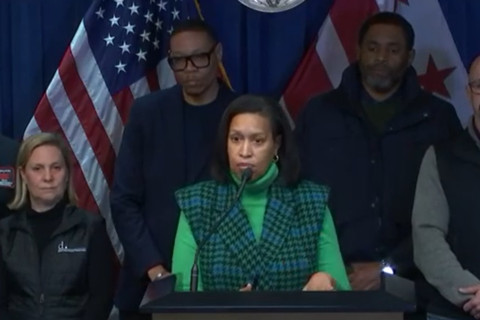A new law in the District makes it easier for women to get a hormonal birth control prescription without visiting a doctor first. The move is part of a growing national trend.
Nearly 30 states and D.C. have approved laws that allow a woman to walk into a local drugstore and get a birth control prescription directly from her pharmacist, according to Dr. Tamara McCants, a pharmacist at BelleVue Pharmacy in Southwest D.C.
“For that young woman who may not have access to care, who doesn’t know where to go, I’m able to get her started,” McCants told WTOP.
Most pharmacists are trained to interview birth control candidates by checking a woman’s medical history, performing pregnancy tests and determining which pill or patch will work best to prevent pregnancy. McCants said going to pharmacies, which are widely accessible, can help create a “one-stop-shop” option for busy women.
“D.C. needs this because we still have a lot of unplanned and unwanted pregnancies,” she said. “It’s really that serious. Having the ability to plan your family is directly linked to poverty. It’s so much more than a health care issue.”
Some states have restrictions on who can and cannot receive hormonal birth control from pharmacists. So far, 18 states allow access for patients of all ages, while other states have some restrictions for minors requesting the medication.
And patients are still required to pay for the service either with insurance or out-of-pocket, just as they would with a doctor.
Pharmacists who offer the service may also be required to receive additional training according to their state’s laws. But much of that training many pharmacy professionals already have, said McCants, who is also the president-elect of the National Pharmaceutical Association.
She said pharmacists successfully proved during the coronavirus pandemic that they can perform a slew of medical tasks often reserved for doctors.
“The world is finally catching up and realizing that we have the ability to fill in gaps for health equity and increase access to care,” McCants said. “A pharmacist’s ability to prescribe birth control is just one of many health care disparities that we can address.”
Michelle Long, a senior policy analyst at the health policy nonprofit KFF, said the law is tracking in blue and red states.
“There’s this recognition that access to birth control is something that’s important to a lot of women,” she told WTOP. “By loosening some of the regulations on who is allowed to prescribe, that’s in keeping with some of the conservative values [of red states].”
Long agrees that pharmacists can carry out the service, many may decide not to offer the prescription to customers.
“Pharmacists have a number of responsibilities, and this is adding a little bit more to their workload,” she said. “While many of them do want to provide this service, it sometimes isn’t feasible when you have a list of many other things you’re doing behind that pharmacy counter.”
Get breaking news and daily headlines delivered to your email inbox by signing up here.
© 2024 WTOP. All Rights Reserved. This website is not intended for users located within the European Economic Area.








